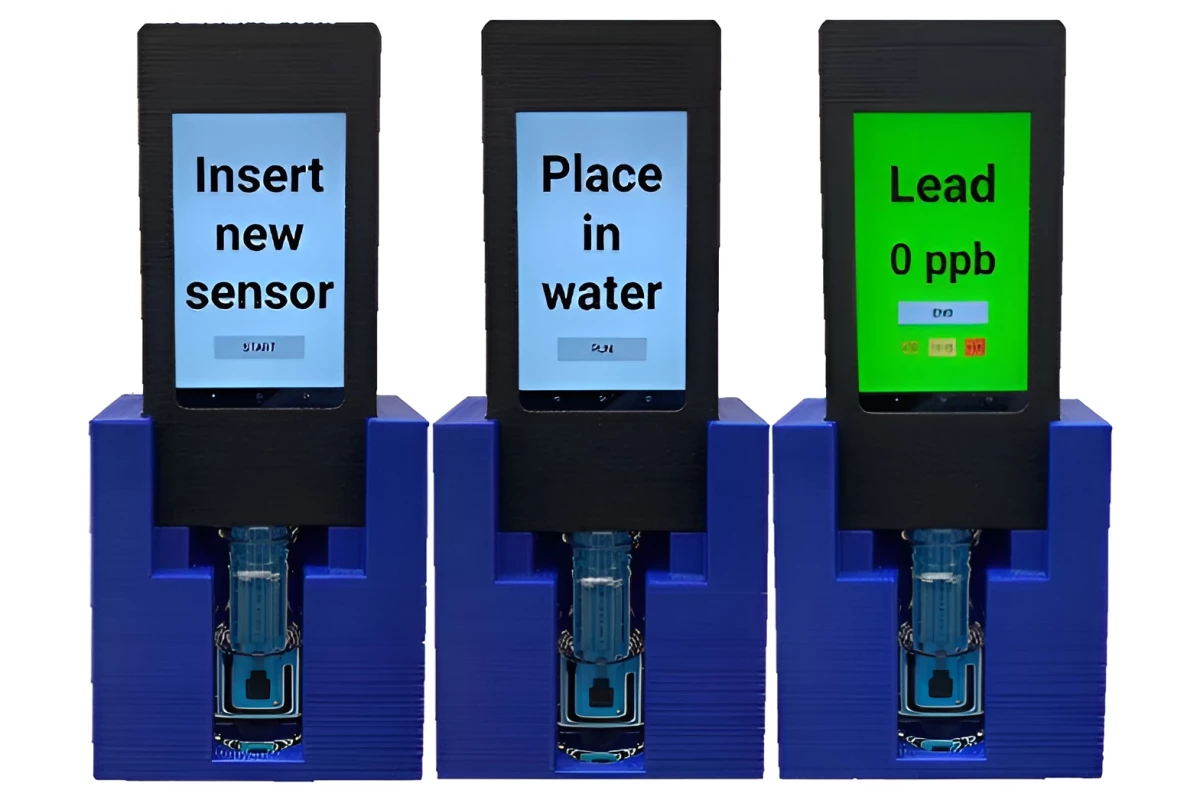If your home has old lead water pipes, there's a chance that harmful concentrations of lead may be present in your water. An experimental new device could soon allow homeowners to check for themselves, instead of waiting for the city to do so.
Typically, when checking for lead in a home's tap water, municipalities (or contractors) will obtain water samples from the dwelling, then analyze those samples in a lab.
Not only is it a time-consuming process, the analysis itself also requires expensive equipment such as spectrometers. Additionally, many homeowners simply don't get around to arranging for a time for a pipe inspection to be performed, at which time the samples will be collected.
That's where the E-Tongue comes in. And sorry, but it doesn't look like a mechanical tongue.
Developed by Prof. Pradeep Kurup and colleagues at the University of Massachusetts Lowell, the portable low-cost device can be operated by a homeowner who is guided by an app on their linked smartphone.
That person starts by depositing a small sample of their tap water into an accompanying vial, along with an included non-toxic buffer solution. The E-Tongue is then inserted into the vial, where it applies a voltage to the water. This causes any lead ions which may be present to stick to the device's gold-modified carbon electrode.
When the voltage is subsequently reversed, those ions come off the electrode, producing an electrical current. The measured strength of that current indicates the amount of lead that is present in the water.
This information is displayed on the color-coded app screen within five minutes, with green indicating concentrations which are below EPA (Environmental Protection Agency) limits, and red indicating levels that exceed those limits.
The technology has already been tested in 317 households spread across four Massachusetts towns. Of the total 634 tap water samples that were user-tested, 10 were shown to contain lead concentrations which exceeded EPA limits. The accuracy of these readings was confirmed when they were compared to traditional lab-based analysis.
"I was driven by the reality that families could be unknowingly exposed to lead," says Kurup. "With the E-Tongue, we are putting knowledge and power directly into people’s hands so they can protect their health and advocate for safer water in their communities."
A paper on the study was recently published in the journal ACS Omega.
Source: American Chemical Society




